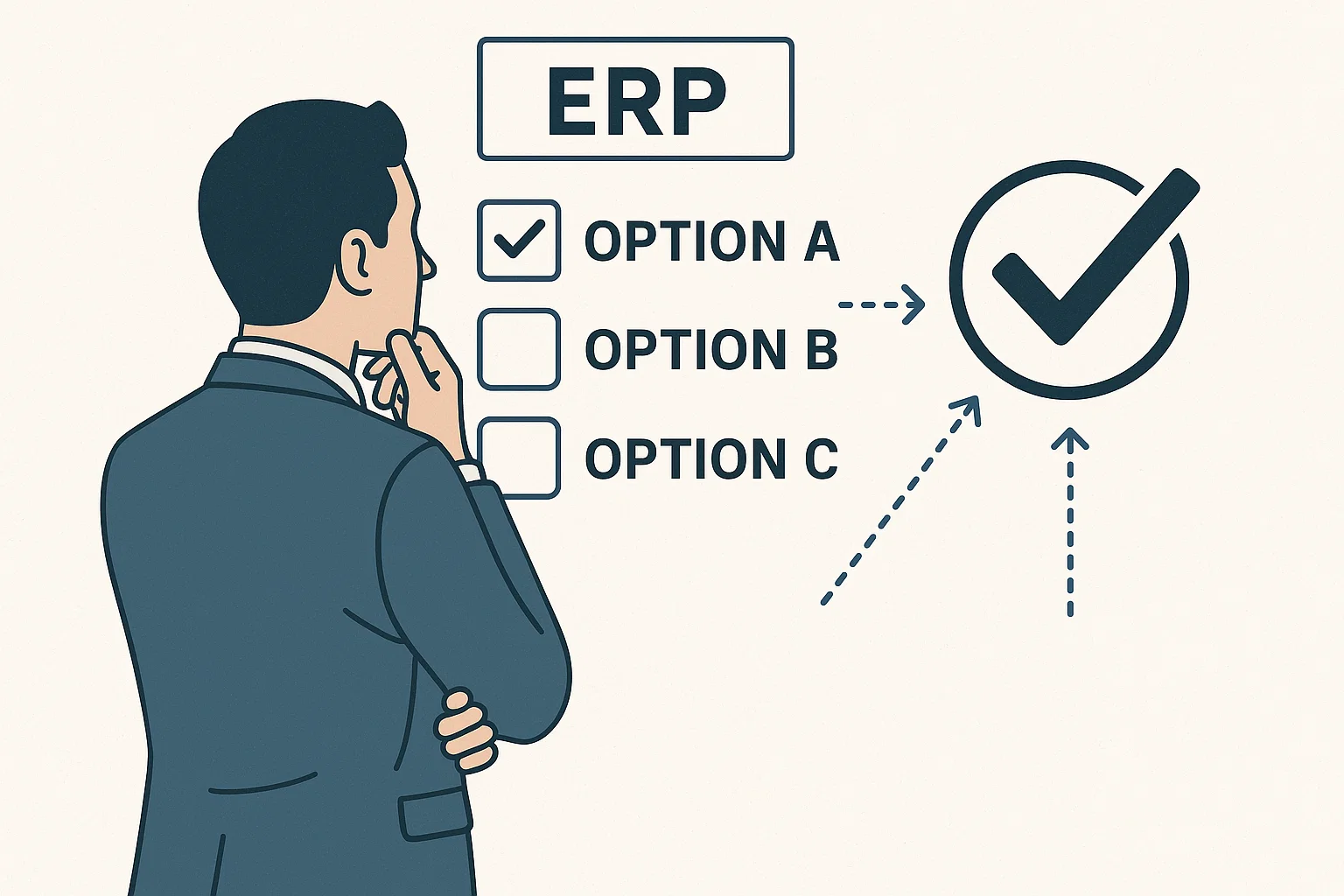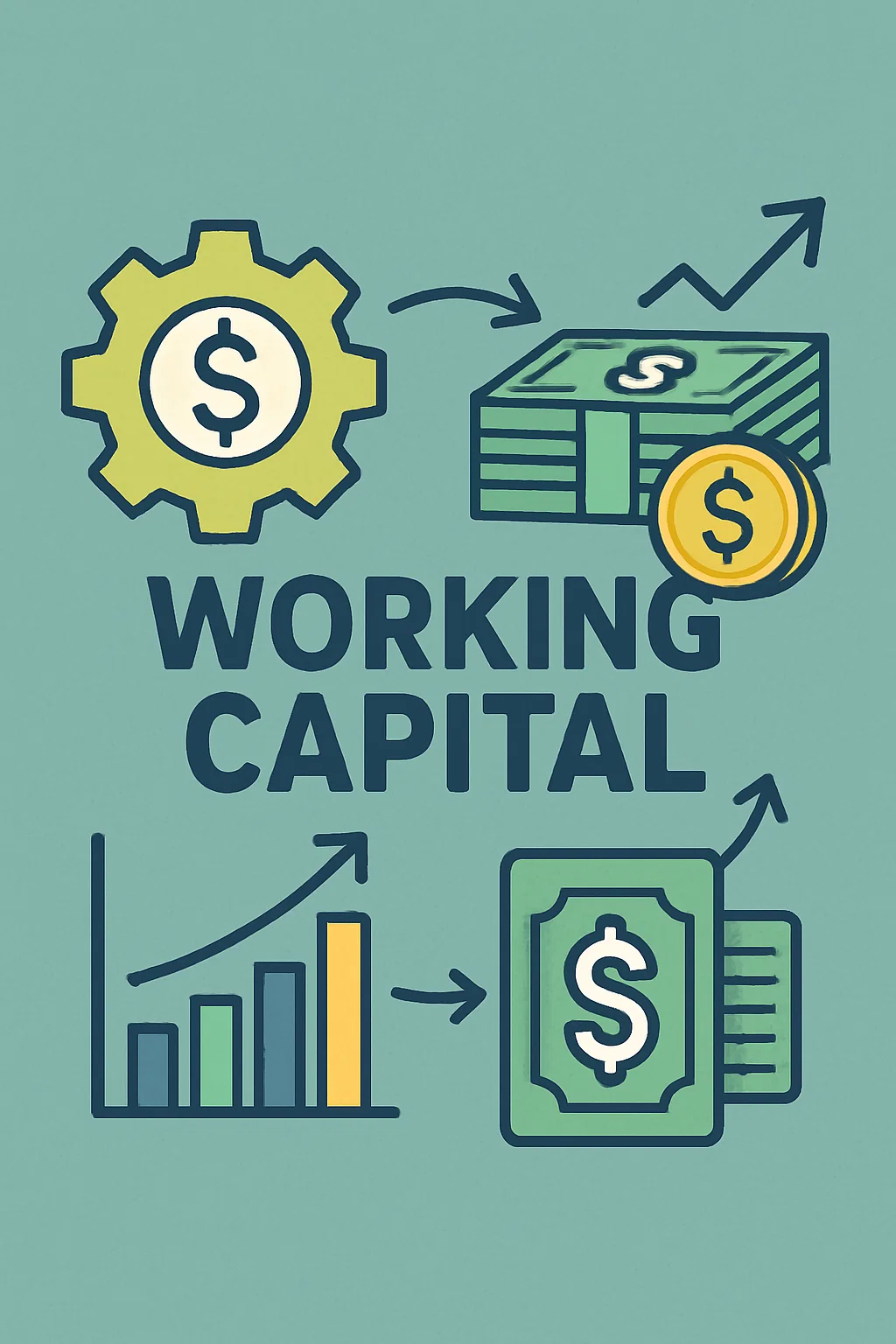“Priya,” Rohan confessed, a pile of reports from different departments scattered across his desk. “Our business is growing rapidly, but it feels like our systems aren’t keeping up. Sales data is separate from inventory, which is separate from our accounting, and HR uses yet another platform. It’s a nightmare getting a clear, holistic view of our operations! I’ve heard about ERPs, but they sound daunting and complex. How do I even begin choosing the right ERP for SMEs in India to achieve truly integrated business management?”
Priya nodded, a knowing smile on her face. “Rohan, you’re experiencing the classic challenge of a growing business. Disconnected systems create data silos, inefficiencies, and hinder real-time decision-making. An ERP (Enterprise Resource Planning) system isn’t just software; it’s a strategic blueprint for your entire business. When you select the right one, it becomes the backbone for streamlining operations with ERP and achieving efficient data management for Indian businesses. It’s a powerful ‘Smart Money Move’ for scalable growth.”
Rohan looked intrigued. “So, an ERP can really tie everything together?”
“Absolutely,” Priya affirmed. “It centralizes all your core business functions into a single, unified system, offering unparalleled visibility, automation, and control. It’s about empowering your business to operate as one cohesive unit, ready for the next level of expansion.”
What is ERP & Why It’s Crucial for Your Business Growth
Priya first explained the fundamental concept of an ERP:
“Imagine having one intelligent system that connects all your departments – finance, sales, purchasing, inventory, HR, and even manufacturing or services. An ERP system does just that. It’s a suite of integrated applications that manages and automates key business processes, pulling all your data into a single, centralized database. This eliminates manual data transfers between departments, reduces errors, and provides real-time financial data and operational insights.”
Why an ERP is crucial for your business’s growth:
- Single Source of Truth: “No more conflicting data. Everyone accesses the same, accurate information, leading to better collaboration and decision-making.”
- Enhanced Efficiency & Automation: “Automates repetitive tasks, reduces manual data entry, and optimizes workflows across departments, leading to significant time and cost savings.”
- Improved Visibility & Control: “Get a holistic view of your operations, from sales pipeline to inventory levels to financial performance, all in real-time.”
- Better Resource Utilization: “Optimize inventory, manage cash flow, and allocate human resources more effectively.”
- Scalability: “A well-chosen ERP is scalable business software for India, growing with your business as you expand your operations, products, or employee base.”
- Customer Satisfaction: “Streamlined processes lead to faster order fulfillment, accurate invoicing, and improved customer service.”
- Compliance & Reporting: “Simplifies regulatory compliance (e.g., GST) and generates comprehensive reports for analysis and strategic planning.”
Priya’s Blueprint: Choosing the Right ERP for Your Indian Business
Rohan, now understanding the immense value, sought Priya’s strategic blueprint for ERP implementation guide in India:
- Define Your Needs & Business Goals Clearly: “This is the most critical first step. What specific pain points are you trying to solve? Are you struggling with inventory, slow financial reporting, poor customer management, or inefficient production? Prioritize the core modules (e.g., Finance, Inventory, Sales, HR) that address your immediate and long-term objectives.”
- Smart Move: Involve key stakeholders from different departments in this needs assessment process to ensure all requirements are captured.
- Assess Your Budget & Resources: “ERPs are a significant investment. Consider not just the software cost, but also implementation fees, customization costs, training, and ongoing maintenance/subscription fees. Evaluate both cloud-based (SaaS) and on-premise solutions. Cloud ERPs typically have lower upfront costs and easier maintenance for enterprise resource planning for small business.”
- Smart Move: Look for transparent pricing models and hidden costs. Don’t let initial low costs blind you to potential long-term expenses.
- Evaluate Scalability & Flexibility: “Your business will grow. Will the ERP system be able to handle increased transaction volumes, more users, new departments, or expansion into new markets? Can it be customized to your unique processes without breaking the bank? A truly scalable business software for India is vital.”
- Smart Move: Choose a platform that offers modularity, allowing you to add functionalities as your business needs evolve.
- Prioritize Integration Capabilities: “An ERP’s power lies in integration. Does it seamlessly connect with your existing essential tools like payment gateways, CRM software, specialized industry-specific software, or e-commerce platforms? This ensures true integrated business management.”
- Smart Move: Ask for demonstrations of specific integrations relevant to your business operations.
- Focus on User-Friendliness & Training: “Even the most powerful ERP is useless if your team can’t use it. Opt for a system with an intuitive interface. Inquire about the training and support provided by the vendor to ensure smooth user adoption.”
- Smart Move: Get feedback from actual users during demo sessions about ease of navigation and learning curve.
- Scrutinize Vendor Reputation & Local Support: “Choose a reputable ERP vendor with a proven track record, especially in the Indian market. Check their customer reviews, case studies, and their local support network. Reliable post-implementation support is crucial for long-term success of your ERP implementation guide India.”
- Smart Move: Ask for references from Indian businesses similar to yours.
- Ensure Data Security & Regulatory Compliance: “Given the sensitive nature of business data, inquire about the vendor’s data security protocols (encryption, backups, disaster recovery) and adherence to Indian data protection norms. Crucially, confirm its capabilities for GST compliance.”
- Smart Move: Understand where your data will be hosted (in India or abroad) and what compliance certifications the vendor holds.
- Plan for Robust Implementation & Post-Launch Support: “ERP implementation is a journey, not a destination. Work closely with the vendor on a clear implementation roadmap. Understand the support structure after go-live, including troubleshooting, updates, and future enhancements.”
- Smart Move: Allocate internal resources dedicated to the implementation project for smoother transition.
“This blueprint makes an otherwise overwhelming decision feel manageable and strategic,” Rohan acknowledged, a new sense of clarity washing over him. “It’s clear that choosing the right ERP is a critical step for our future.”
“Precisely, Rohan!” Priya affirmed. “Implementing an ERP is a transformative ‘Smart Money Move.’ By meticulously following this blueprint, you ensure you select the ideal enterprise resource planning for small business that truly enables integrated business management in India, powers streamlining operations with ERP, and provides robust data management for Indian businesses, setting your venture on an accelerated path to scalable growth and long-term success.”
Is your Indian SME ready to unlock the power of integrated business management with an ERP but unsure how to approach choosing the right ERP? Need expert guidance on ERP implementation or identifying scalable business software to streamline operations and enhance data management? Visit 21degrees.in and let our seasoned financial advisory team help you assess your needs, evaluate suitable ERP solutions, and guide you through the implementation process for seamless business integration and accelerated growth.




